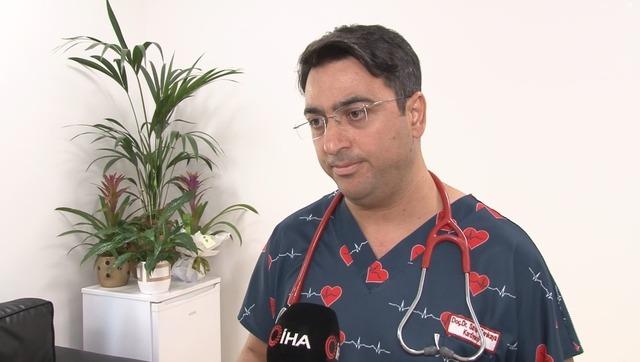Living in Istanbul, Mehmet Göçer went to the nearest hospital when he started experiencing chest pain and shortness of breath. While waiting in line at the hospital, Göçer suddenly collapsed. The young man was treated immediately at the hospital, and it was understood that he was having a heart attack, and CPR was performed on his stopped heart for 30 minutes. Göçer, whose heart started beating again but he was unconscious and was connected to a ventilator, was transferred to another hospital.
“IF HE WAS CAUGHT AT HOME, THE PROBABILITY OF DEATH WAS CLOSE TO 100 PERCENT”
Head of Cardiology Department Assoc. Prof. Dr. Savaş Sarıkaya explained the next process as follows:
“When the patient arrived, he was unconscious and intubated. We detected a blockage in the main artery of our patient’s heart and took him to the angiography unit. We opened the coronary artery very suddenly and rapidly with a balloon and stenting procedure. 60-70 percent of such patients, and almost 100 percent if they are at home rather than in the hospital, lose their lives. The mortality rate is higher in young patients. Because in young people, the deep-rooted vessels in the heart, which we call collaterals, do not develop, unlike in the elderly, these vessels suddenly become blocked and the heart’s self-protection mechanisms are not at the forefront. For this reason, cases can result in death. This patient is very lucky. Thanks to being in the hospital and the very good management of the team at the hospital and the subsequent process, he is alive and in very good health.”
“THE BRAIN WAS COOLED TO 32-33 DEGREES”
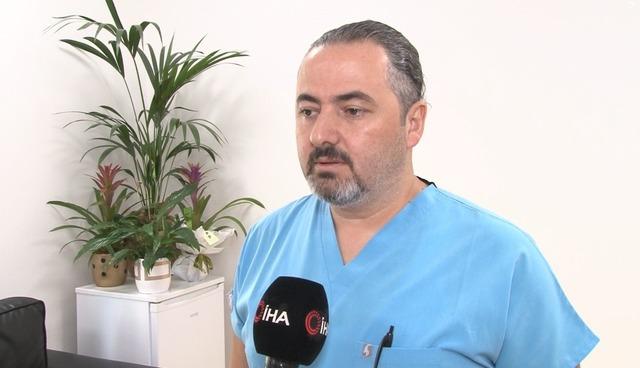
Adult Intensive Care Unit Manager and Anesthesiologist Uğur Altan Işık, who explained the next stage of the treatment, stated that Mehmet Göçer, whose heart stopped for a long time, had brain damage and multiple organ failure, and said, “When this patient came to us, his condition was severe. He had developed serious brain edema. His liver enzymes were 20 times the normal values, and kidney failure had begun. We have a hypothermia protocol for this. This is a protocol that has begun to be accepted worldwide. A special device cools the brain for 72 hours and then gradually warms it up. The brain, along with the entire body, is cooled to 32-33 degrees. The patient was woken up again after gradually warming it up.”
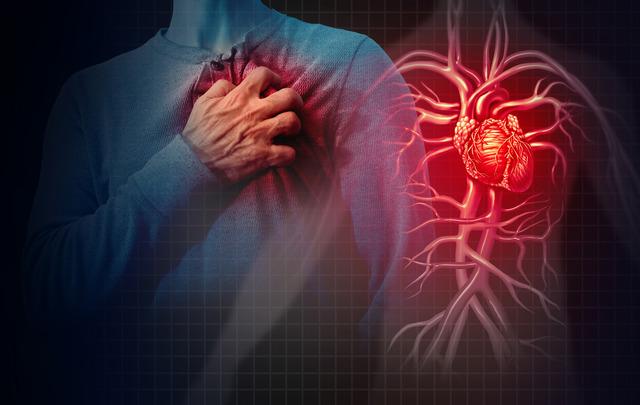
“Our expectations for this patient were a bit scary, we were prepared for a difficult process,” said Işık, “We were able to separate the patient from the ventilator after this treatment. Although there was brain edema, consciousness returned on the 4th day. Liver and kidney failure symptoms rapidly regressed. For now, liver, kidney and brain functions are good with the treatment. This is not a routine application. We have such devices ready for the hypothermia protocol. Our waiting periods are shorter. Some centers apply it, but it is not routine.”
“YOU SHOULD BE ADMITTED TO THE HOSPITAL IMMEDIATELY TO AVOID BRAIN DAMAGE”
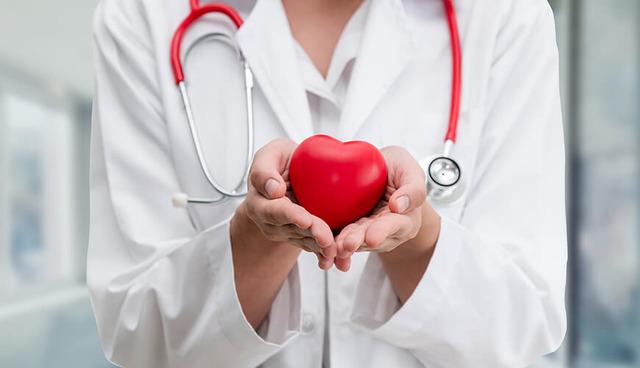
Işık, who stated that serious brain damage such as disability, sequelae and bedridden conditions are experienced in such cases, said, “The main purpose of brain cooling in these patients is to minimize brain damage. We may not be able to reduce it to zero, but we can reduce it considerably. In cases of suspected heart attack, it is critical to immediately apply to the hospital and start the hypothermia protocol at an early stage, within 4-6 hours. We started hypothermia on this patient at the 4th hour and achieved good results.”
“I THOUGHT IT WAS A HEART ATTACK FROM AN AIR CONDITIONER”

Mehmet Göçer, who remained intubated for three days and was removed from intensive care on the 6th day, described his experiences as he remembered them: “I went to the hospital on July 23 due to heart constriction. I don’t remember, but I was transferred here by ambulance. The nurses and doctors here were very helpful. Our war doctor put in a stent. I was having a heart attack, I didn’t know. I thought it was an air conditioner shock. I slept for 72 hours. I’m fine now. I will be more careful about my health in the future.”
WHY HAVE HEART ATTACKS INCREASED AT A YOUNG AGE?
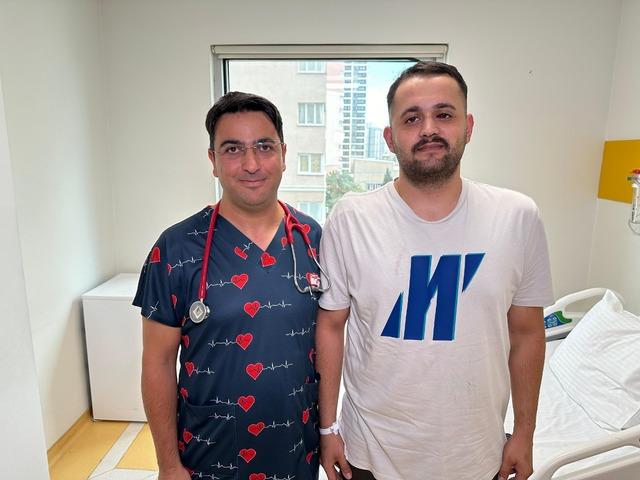
Assoc. Prof. Dr. Savaş Sarıkaya stated that the number of heart attacks at a young age is increasing and said that the most important reasons for this are smoking, irregular and unhealthy diet, inactivity, insomnia, stress and obesity. Sarıkaya said, “Diabetes and high blood pressure inherited from the family also increase the risk of heart attack. The most common reasons are irregular diet, insufficient exercise and smoking. Smokers generally tend to blame Covid-19 vaccines. However, there is no evidence in scientific studies that vaccines increase heart attacks. We perform 10-15 angiograms a day and heart attack cases are very common. We have not seen a heart attack related to the vaccine so far. Most of the heart attack cases are smokers.” (İHA)
